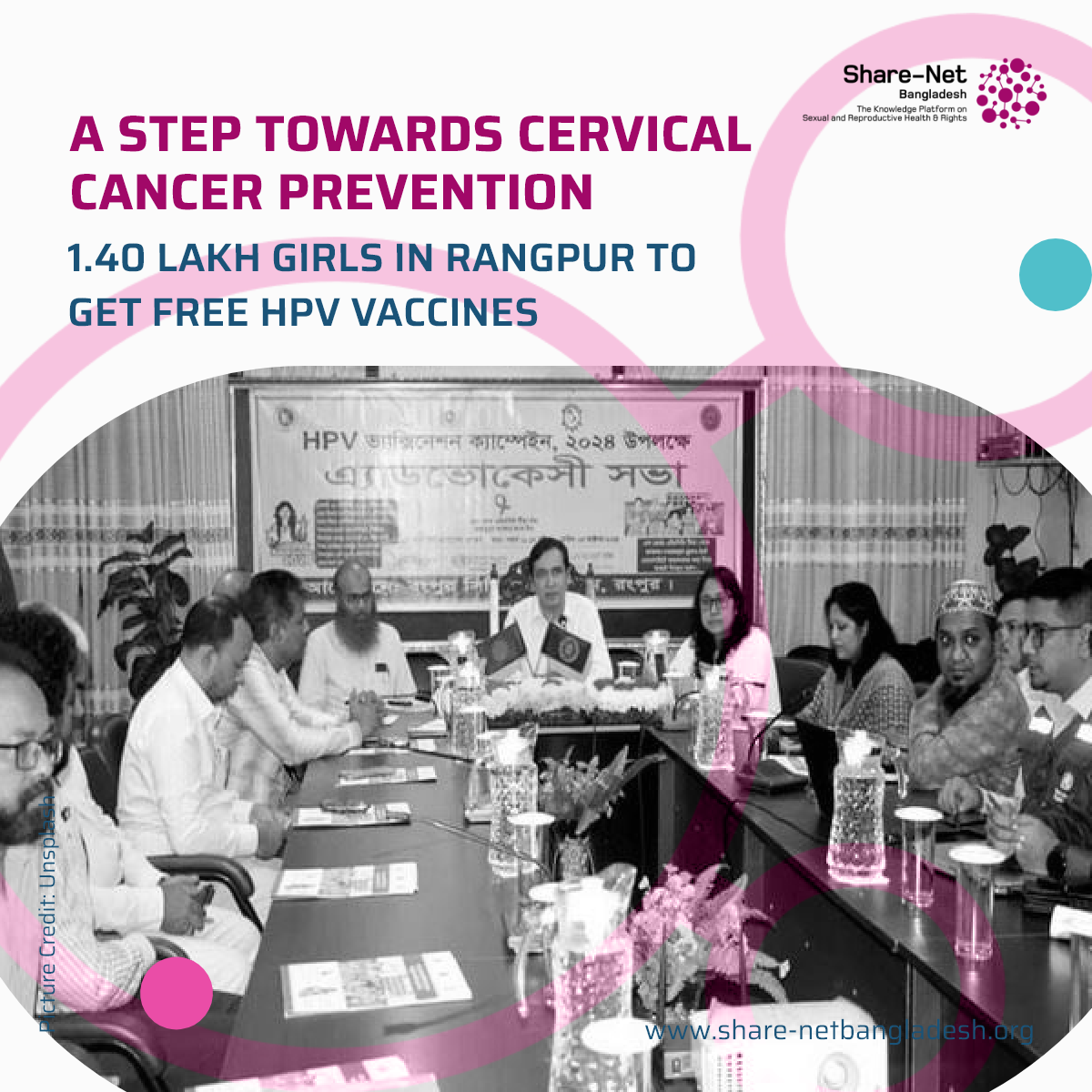A Step Towards Cervical Cancer Prevention: 1.40 Lakh Girls in Rangpur to Get Free HPV Vaccines
In a significant move to protect young girls from cervical cancer, around 1.40 lakh juvenile girls in Rangpur are set to receive the Human Papillomavirus (HPV) vaccine. This free vaccination campaign, beginning on October 24 and continuing until November 23, aims to immunise girls aged 10 to 14 years across Rangpur City Corporation (RpCC) and its eight upazilas.
“To reduce the risk of cervical cancer in women, the government has taken the initiative to give free vaccination to female children and adolescents,” said Md Azmal Hossain, Acting Rangpur Divisional Commissioner, during a press conference at the RpCC. He added that 31,163 school-going girls and community-level adolescents in the city area will receive the vaccine, covering 500 educational institutions and community areas.
The initiative is a key step in tackling cervical cancer, which remains the second highest cause of cancer-related deaths among women in Bangladesh. Cervical cancer is a global health concern as well, with an estimated 600,000 new cases and 300,000 deaths annually, according to the World Health Organization (WHO). In Bangladesh, the introduction of the HPV vaccine into the expanded immunisation program marks an important milestone in women’s health.
Civil Surgeon Dr. Mostafa Zaman Chowdhury shared that 1,04,152 schoolgirls from the fifth to ninth grade, along with an additional 4,034 community-level girls, will be vaccinated across the upazilas of Rangpur. “It is very important that adolescents receive this vaccine at the right time,” he emphasised. One dose of the HPV vaccine is considered sufficient to provide effective protection, making it a cost-effective and globally tested solution in the fight against cervical cancer.
The HPV vaccine protects against the virus that is responsible for the majority of cervical cancer cases. Its inclusion in Bangladesh’s immunisation program also highlights the government’s commitment to Sexual and Reproductive Health and Rights (SRHR). By prioritising adolescent girls’ access to vaccines, Bangladesh is not only addressing immediate health concerns but also promoting long-term sexual and reproductive wellness.
Dr. Kamruzzaman Ibne Taz, Chief Health Officer at RpCC, noted that the vaccine is “safe and effective,” offering hope for reducing cervical cancer deaths in the future. With strong support from government and health officials, this campaign underscores the importance of preventive healthcare and the protection of girls’ and women’s reproductive rights.
This campaign is expected to improve awareness and access to sexual health resources, further aligning Bangladesh’s health strategies with global SRHR goals.


